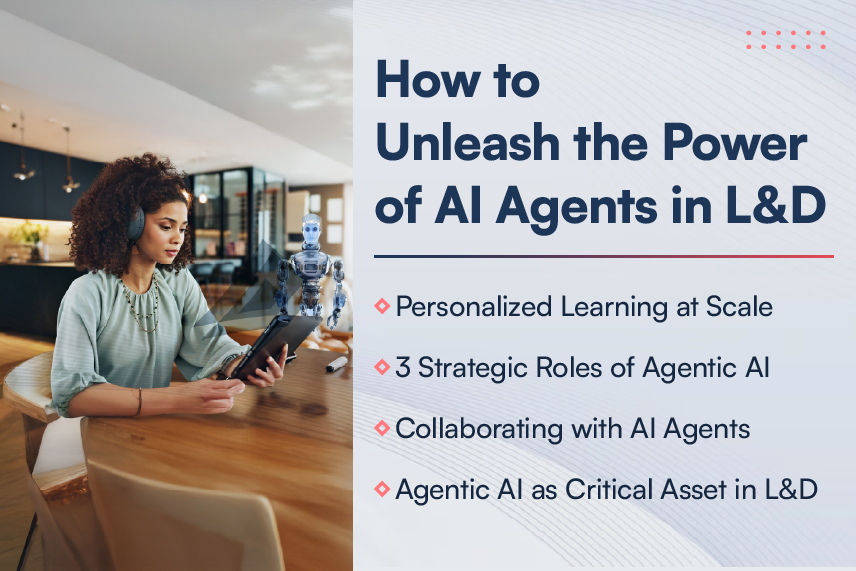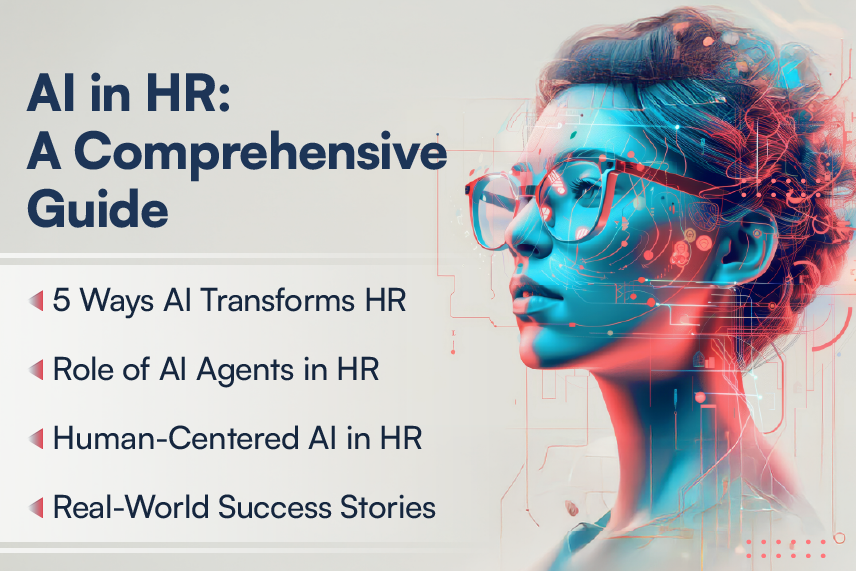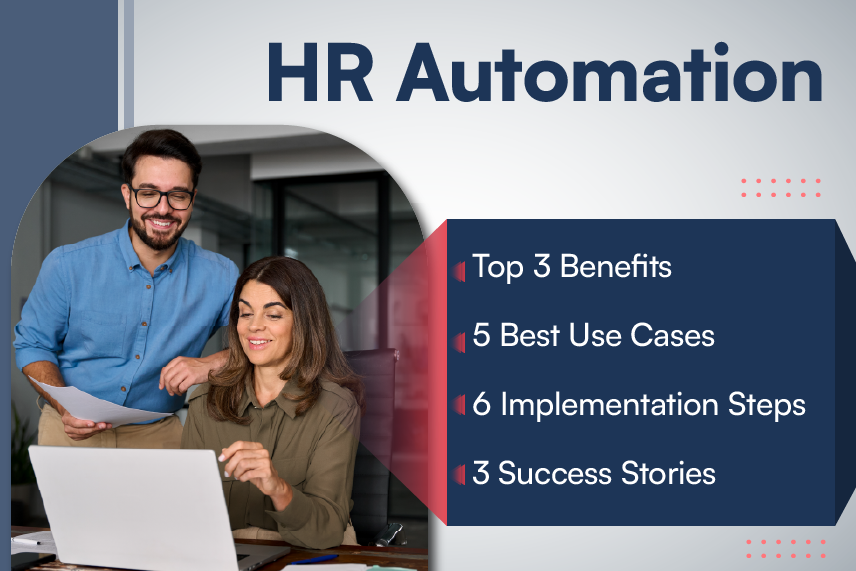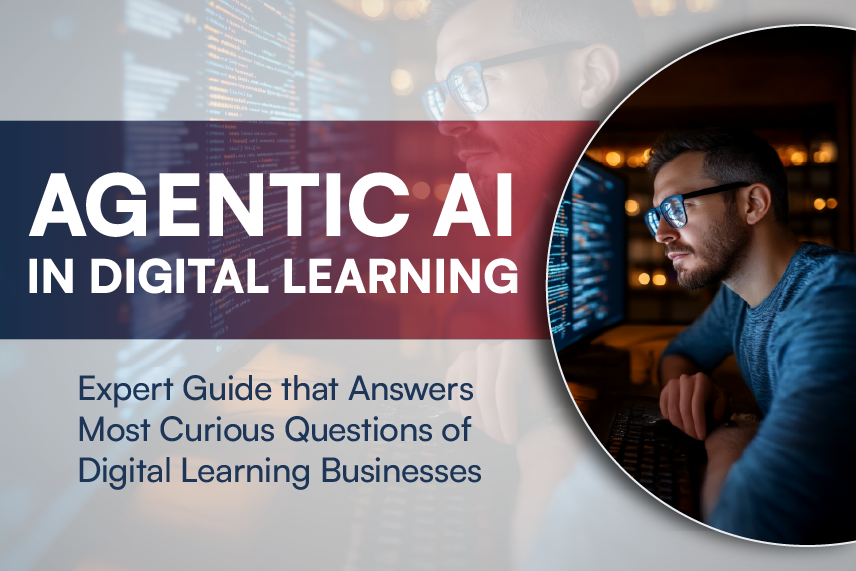
Human resource operations are necessary for every company, right from hiring new staff, training purposes, to compliance with local labor laws.
A lot of activities in HR are manual. However, as companies have already started adopting automated technology to cope with modern-day business challenges, the HR function too, is adapting itself. Automation is invading the realm of human resources, and soon everything that can be automated within the HR departments.
According to Gartner, hyperautomation will achieve a market of $600 billion by 2022. With that statistic, let us look at hyperautomation from the HRTech lens. We will start with understanding the need for hyperautomation and then discuss how platforms can help us accelerate our go-to-market strategy to integrate hyperautomation in HRTech.
What is Hyperautomation?
Hyperautomation is a disciplined, business-oriented approach that organizations use to identify, inspect, and automate business processes and IT operations to an extent. Hyperautomation involves the systematic use of many technologies, tools, or platforms, including Artificial Intelligence (AI) and Machine Learning (ML).
To discuss the role of hyperautomation in the field of HR, Shrikant Pattathil, President at Harbinger Systems, recently got into an interesting discussion with Nick Anthony, Director of Business Development at Workato, and Tejeswi Sreekantan, Director, Global SI Partnerships and Strategic Alliances at Yellow.ai. The webinar was hosted by Harbinger Systems where the experts shared their insights on the need for hyperautomation in human resources process management, ways to survive the great resignation, how to increase employee engagement, how automation platforms can help us accelerate our go-to-market strategy, and more.
Excerpts from the conversation:
Shrikant: How can hyperautomation help in improving employee engagement?
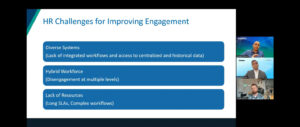
Nick: It’s a great question, and it’s pretty critical to understanding, especially when this great resignation wave is going on. There are probably a few significant areas where hyperautomation is making a sizable impact. The first one is, in terms of employee experience and onboarding, as many repeatable processes go unautomated.
The first few days at an organization are essential from the company’s perspective.
In an organization where all the processes are manual, HR data like social security numbers, birth certificates, and medical information are susceptible, and there’s a high risk of data leakage. Ideally, leveraging an encryption technology or masking that data will ensure that the company can minimize the risk of data exposure.
Tejeswi: I agree with Nick about the employee engagement onboarding process. The experience you provide to your candidate when they join the organization is significant. During the initial days, potential employees look at the culture within the organization, the processes they have to go through, and how they can make it to the next level.
With the amount of talent large enterprises are looking to onboard today, it is impossible to manually carry out the different processes.
Integrating hyperautomation in HRTech is the only way these processes can be replicated.
After integration, the entire process will be automated, and HRs can send direct updates about scheduled meetings, training programs, knowledge management, information about work culture, which candidates will really appreciate.
I am saying so because HR invests a lot of time in candidate screening, and now if we don’t handle it sensitively, we may lose the right candidate.
Hyperautomation in HR processing can be a great enabler that makes the candidates feel at home. Also, when onboarding a candidate remotely, these things take precedence and do matter to employees, so automation is required to make the experience smooth.
Shrikant: How has Hyperautomation helped in improving customer experience?
Nick: I’ll share an example of an implementation that we did for one of our customers.
As per the client, they were facing onboarding challenges and could not provide a personalized experience to the employees after onboarding.
In terms of solution, we created virtual assistance, or you can call it, digital twin of their HR. The digital solution was responsible for keeping the candidates updated on their following schedules, interviews, and other important information, and connected it to their HRMS.
This is how it works:
Once the candidate profile is created, the digital assistant understands the band level and guides them throughout the process. This embedded solution works directly with enterprises on their automation strategy and helps improve the employee experience.
A quick glance at the types of Hyperautomation
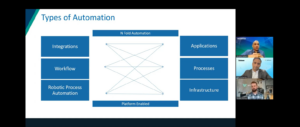
Shrikant: How much does a company need to invest in Hyperautomation?
Nick: Understanding the cost of implementation is more important than understanding the cost of change or automation. We have various frameworks leveraged today with our go-to-market teams, and we have a way of calculating the cost of moving with various competitors as well as what it will cost on Workato.
Costs on the embedded side are slightly different because it depends on how the customer wants to reincorporate the return. It’s almost more like an alliance because you’ll be partnering with B2B SaaS companies.
Hyperautomation offers a lot more than we can imagine
The webinar included discussions on human resource management and processes that should be automated and how employee engagement is critical to retention. Shrikant also shared key insights on the role of HRTech. Furthermore, the panelists also discussed the need for various types of hyperautomation using iPaaS platforms and BoT platforms that can be super helpful in improving engagement. Do watch the webinar recording.

In a nutshell, hyperautomation directly correlates with employee engagement and can help organizations overcome the effects of the Great Resignation wave as well. It would be beneficial to quickly make the transition toward an automated HR system so that the HR department delivers to the best of its ability.
In this regard, the HRTech software from Harbinger Systems could be your best bet as the software has a plethora of HR tools that you can use to automate processes. You can take a look at the unique HRTech offerings by Harbinger Systems and reach out to our experts to accelerate your HR vision.



